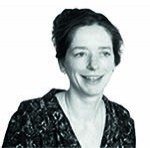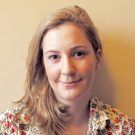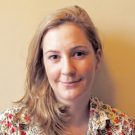Spectator: Lucy Baring at the Orkney Folk festival
Lucy Baring visits Orkney for the annual folk festival


It didn't start well. Having discussed it many times, my friend Kate and I decided that this was the year we'd get to the Orkney Folk Festival. I'd miss the beginning of half-term, but convinced myself this would pass unnoticed, having failed to realise from the comprehensive emails and school calendars that there was a vital parent-teacher meeting day at two out of our four schools, which meant Zam would have to criss-cross the country.
Even worse, Kate, who had left the day before me to join two other friends already on the islands, rang at 8pm to say that her flight had been delayed, which meant she had missed the connection to Kirkwall, which meant that, well, at that precise moment, she would be sleeping on the airport floor.
There was a conference in Aberdeen so every hotel room in the city had been taken by sustainable-energy consultants. We looked into getting her back to Southampton, Gatwick, Heathrow or anywhere, but there were no flights. It was only when she wailed, entirely truthfully, ‘It's my birthday' to the Flybe representative that he took pity on her and set her off on a three-hour taxi journey to Inver-ness, where she spent the night in a Best Western.
The following day, I landed in Kirkwall in winds you couldn't stand up in. An hour later, we were admiring the Ring of Brod-gar-or, rather, sheltering behind its Neolithic mass. We mentioned how many stones there seemed to be in people's gardens to our guide at the Maeshowe chambered cairn, who explained that it had been an unfortunate fashion on the island to erect fake stones. He felt for the archaeologists of the future trying to unpick this evidence in 3,000 years' time.
At Skara Brae, the 4,000-year-old village uncovered by a storm in 1850, a charming young custodian was sweeping the paths. ‘We're very houseproud here and, luckily, I'm a Neolithic-sized person,' she declared as she ducked into a house I would have had to enter on my knees.
Our first concert began at 7.30pm, but we'd misjudged distances and had imagined a pretty informal affair, so it came as something of a surprise to be ushered, during an interlude, into an atmosphere more reverential than the Queen Elizabeth Hall where two school-age-looking girls were playing harps with dreamy harmonies. It was the beginning of a three-day musical feast, each concert displaying variety and talent in equal measure. Many of the bands were made up of siblings and were mostly Scottish or Irish.
I also wanted to see where our beloved nanny Christine had been born and brought up. She was 18 when she was interviewed by my formidable cousin in Aber-deen and, on passing this test, was put on a train south. She'd never been off the islands before, but as soon as she arrived, she became part of our family and we all adored her. It must have taken some courage-my mother remembers her astonishment at seeing her first apple tree-and I'm not sure, had I been an Orcadian, that I would have ever left these beautiful islands.
Exquisite houses, the beauty of Nature, and how to get the most from your life, straight to your inbox.
Quiet, shy, immensely kind and patient, she lived with us until she married and had her own family before returning to live next to my parents until her premature death from cancer. As I drove down the street where her mother Jessie had lived, I felt a renewed sense of loss.
Listening to the fiddles in the Stromness Hotel, I wondered what Christine would have said if I told her what I was thinking: it may be too late for me to become a brain surgeon or a barrister, to join the Foreign Office or work for Radio 4, but, surely (leaving aside a total lack of talent), I could buy a guitar, discover some uncharacteristic dedication, practise a couple of hours a day, acquire some harmonising siblings, grow a beard, take singing lessons and find my inner Celt? I can see her gentle smile now, accompanied by just the faintest shake of her head.
to Country Life and save; Get the
Ipad edition
* Follow
